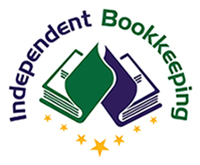Maintaining well-organised financial records is the cornerstone of effective bookkeeping and financial management for any business. In the UK, where compliance with HM Revenue & Customs (HMRC) regulations is essential, the importance of organisation cannot be overstated. Not only does it facilitate smoother financial operations and tax filings, but it also provides business owners with clear insights into their financial health. This blog post outlines the best practices for organising financial records, ensuring your bookkeeping is both compliant and efficient.
- Keep Business and Personal Finances Separate
One of the first rules of business finance is to maintain a clear boundary between business and personal transactions. Open a business bank account and use it exclusively for business transactions. This separation simplifies bookkeeping, enhances the accuracy of financial reports, and ensures compliance with tax regulations.
- Go Digital
In today’s digital age, moving away from paper-based systems towards digital record-keeping is a game-changer. Digital records are not only more environmentally friendly but also more accessible and secure. Utilise cloud-based accounting software to store invoices, receipts, bank statements, and other financial documents. These platforms often come with added benefits such as real-time updates, financial analysis tools, and easy sharing capabilities for collaboration with your bookkeeper or accountant.
- Implement a Consistent Filing System
Whether you choose to keep digital or physical records (or a combination of both), implementing a consistent filing system is crucial. Organise your documents by category (e.g., invoices, receipts, bank statements) and by date. Ensure each document is clearly labelled and stored in a logical order. For digital records, use a clear file naming convention that includes the date and type of document for easy retrieval.
- Regularly Update and Reconcile Your Records
Bookkeeping is an ongoing task, not a once-a-year marathon before tax deadlines. Regularly updating and reconciling your financial records can prevent discrepancies and ensure that your financial information accurately reflects the state of your business. Aim to update your books at least monthly, if not weekly.
- Retain Records for the Required Duration
HMRC requires businesses to keep records for at least six years. This period may extend in certain circumstances, such as if a transaction covers more than one accounting period or if there are questions about a submitted tax return. Ensure that you retain all necessary documents for the required duration to comply with legal requirements and to facilitate any future audits or inquiries.
- Understand What to Keep
Knowing what financial records to keep is as important as organising them. Essential documents include but are not limited to:
Invoices and receipts for sales and purchases
Bank statements and loan documents
Payroll records
Tax returns and calculations
Financial statements (profit and loss, balance sheet)
Contracts and agreements
- Use a Checklist
Creating a checklist for managing your financial records can help ensure that nothing is overlooked. Include regular tasks such as invoicing, payroll processing, receipt collection, and bank reconciliation. A checklist can serve as a roadmap for your bookkeeping processes, ensuring completeness and consistency.
- Seek Professional Help When Needed
If organising your financial records becomes overwhelming, consider seeking the assistance of a professional bookkeeper or accountant. These experts can not only help set up an efficient system tailored to your business needs but also ensure ongoing compliance and optimisation of your financial management practices.
Conclusion
Organising your financial records effectively is pivotal for successful bookkeeping and overall business management. By implementing these best practices, you can ensure accuracy, compliance, and a clearer picture of your business’s financial health. Remember, well-organised financial records are the foundation upon which sound business decisions are made.

